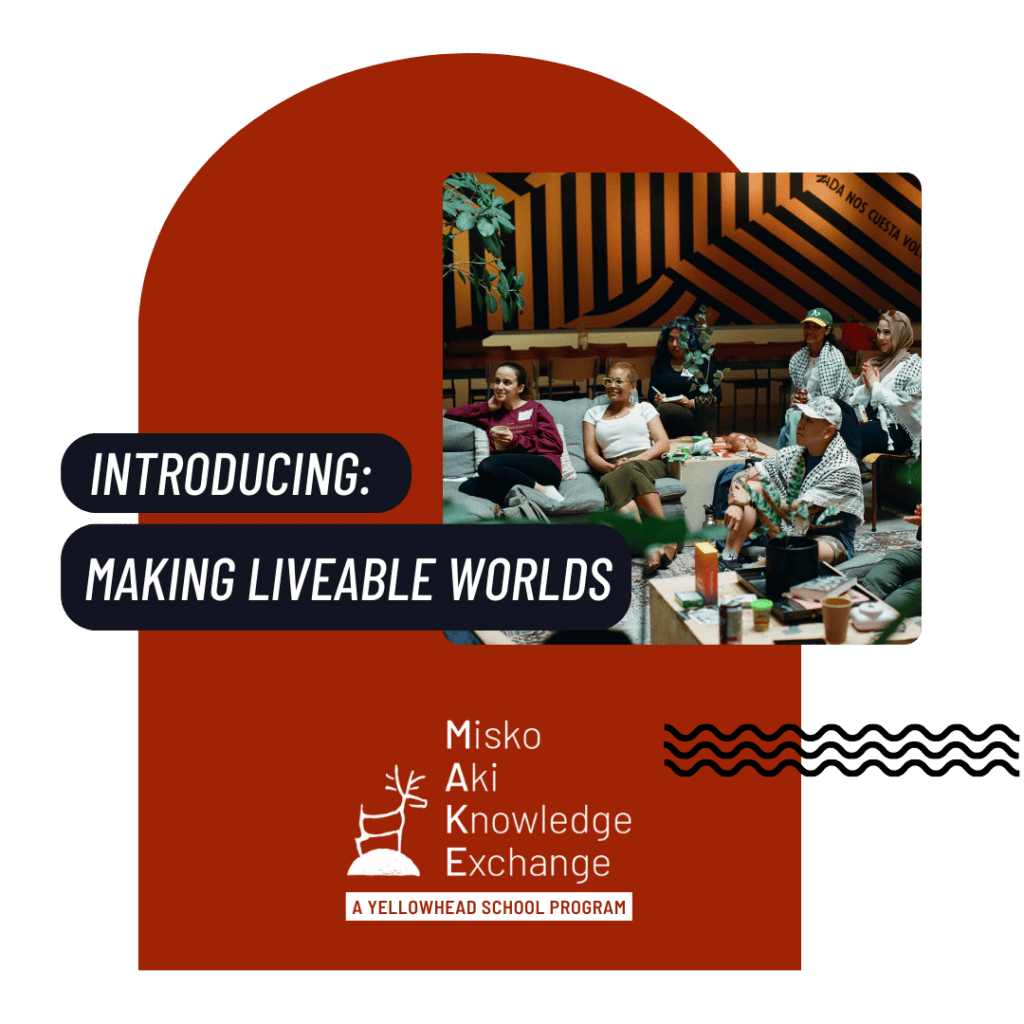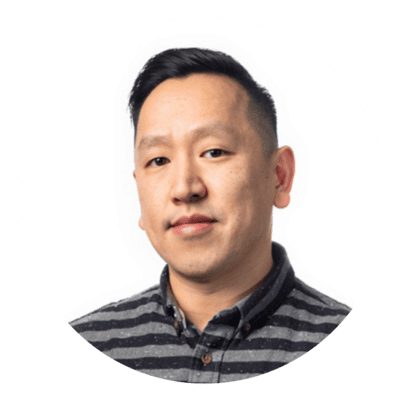2025 MISKO AKI KNOWLEDGE EXCHANGE
Making Liveable Worlds
An opportunity for Indigenous, Black, and racialized community helpers involved in local, place-based initiatives to deepen and expand knowledge on making liveable worlds through intensive learning.

Applications are now closed for the Misko Aki Knowledge Exchange spring session, running throughout May 2025.
The Misko Aki Knowledge Exchange (MAKE) is a tuition-free, non-accredited, educational program. This innovative program explores the many ways academics, artists, and activists make liveable worlds informed by Indigenous and decolonial perspectives and research. The Misko Aki Knowledge Exchange is grounded in theoretical learning and practical application; it aims to be rigorous, intentional, and devoted to transformation and revitalization. The lessons of this interactive and collaborative program can be applied to learner’s professional and personal activities and pursuits.
LOCATION
Virtual + In-Person in Toronto, Ontario
COST
There are no fees for the Misko Aki Knowledge Exchange. Yellowhead Institute will cover the costs for students’ travel, accommodation, and meal expenses to participate in the required in-person intensive session.
POTENTIAL TOPICS
- Online Movements, IRL Social Change
- Cultivating Intergenerational Spaces
- Embodied Learning Through Somatics
- Stop Doomscrolling and Decolonize Emergency Preparedness
- Get That Bag: Redistributing Wealth
ABOUT OUR NAME
Our program is named after Anishinaabe leader William Yellowhead (1760-1865), who was also known as Misko Aki or ‘Red Earth.’ With support to name our Institute after Chief Yellowhead from the Yellowhead family as well as the Rama First Nation Chief & Council, we strive to honour the legacy of Misko Aki. Our program builds on Radical Policy School 2024.
2025 Key Program Dates
Accepting Applications
February 10-24
Decision Letters
March 21
Enrolment Confirmation
March 28
Virtual Orientation
April (Date TBC)
Virtual Session Dates
Thursdays, May 1-22,
7-9pm EDT
In-Person Session (Toronto)
May 26 – 30 (does not include travel days)
Meet Our 2025 Faculty
TO BE ANNOUNCED
Meet Our 2025 Selections Committee
The committee is composed of some alumni from our 2024 MAKE (previously Radical Policy School) program.

Lindsay Debassige

Ja'miil Millar

Joe Banh

Sara Mai Chitty
This year’s theme is inspired by "Making Liveable Worlds: Afro-Puerto Rican Women Building Environmental Justice" by Hilda Llorens (2019), as well as the ongoing efforts of Indigenous communities and colleagues dedicated to creating liveable spaces.
Frequently Asked Questions (FAQS)
The Misko Aki Knowledge Exchange is an ideal program for Indigenous, Black, and racialized community helpers involved in local, place-based initiatives who are interested in expanding and deepening their knowledge on the theory and practice of making liveable worlds and what it means to refuse conditions of settler colonialism, racial capitalism, and climate injustice.
Applicants are not required to have completed any level of formal education. MAKE 2025 encourages applications from those who have been excluded from formal learning opportunities.
This Indigenous-led, place-based program will allocate 50% of enrollment opportunities to Indigenous applicants and prioritize residents of the Greater Toronto Area (GTA).
This is an intensive program that requires students to commit an average weekly time of 2-4 hours a week — two hours per week for virtual sessions and up to two hours for additional course preparation.
Students must attend a minimum of two in order to attend the in-person gathering.
The program concludes with a five-day in-person gathering in Toronto, ON. Out-of-town students should allot an additional two days for travel.
There are no application, enrollment, tuition, or supply fees for MAKE 2025. Yellowhead School will cover students’ travel, accommodation, and most meal expenses during the required in-person session.
Students must ensure reliable, consistent access to a computer and internet connection to attend virtual sessions.
Costs relating to time away from paid employment will not be covered by Yellowhead School.
This Misko Aki Knowledge Exchange session is for Indigenous, Black, and racialized community helpers.
This year’s cohort will be small! We may invite some applicants to join a waitlist – if this is the case, those invited to do so will receive guidance on when they can expect to receive updates on their admittance to the program. This invitation to join the waitlist is not a guarantee of acceptance and is entirely dependent on the number of enrolments following the first round of invitations.

